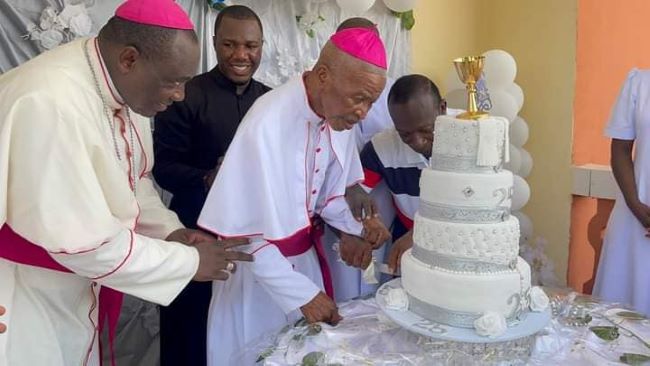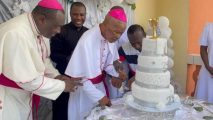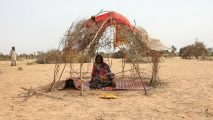Categories
Archives
- April 2024
- March 2024
- February 2024
- January 2024
- December 2023
- November 2023
- October 2023
- September 2023
- August 2023
- July 2023
- June 2023
- May 2023
- April 2023
- March 2023
- February 2023
- January 2023
- December 2022
- November 2022
- October 2022
- September 2022
- August 2022
- July 2022
- June 2022
- May 2022
- April 2022
- March 2022
- February 2022
- January 2022
- December 2021
- November 2021
- October 2021
- September 2021
- August 2021
- July 2021
- June 2021
- May 2021
- April 2021
- March 2021
- February 2021
- January 2021
- December 2020
- November 2020
- October 2020
- September 2020
- August 2020
- July 2020
- June 2020
- May 2020
- April 2020
- March 2020
- February 2020
- January 2020
- December 2019
- November 2019
- October 2019
- September 2019
- August 2019
- July 2019
- June 2019
- May 2019
- April 2019
- March 2019
- February 2019
- January 2019
- December 2018
- November 2018
- October 2018
- September 2018
- August 2018
- July 2018
- June 2018
- May 2018
- April 2018
- March 2018
- February 2018
- January 2018
- December 2017
- November 2017
- October 2017
- September 2017
- August 2017
- July 2017
- June 2017
- May 2017
- April 2017
- March 2017
- February 2017
- January 2017
- December 2016
- November 2016
- October 2016
- September 2016
- August 2016
- July 2016
- June 2016
Featured
 Bishop Francis T. Lysinge @ 25!
Bishop Francis T. Lysinge @ 25!  Understanding the Biya Francophone regime’s support for the Israeli genocide in Gaza
Understanding the Biya Francophone regime’s support for the Israeli genocide in Gaza  Poverty under Biya: Cameroonians embrace Chinese language for brighter futures
Poverty under Biya: Cameroonians embrace Chinese language for brighter futures  Cameroon is broken: Who can fix it?
Cameroon is broken: Who can fix it?  Ethiopia: U.S Senator Cardin Statement on the Killing of Bate Urgessa
Ethiopia: U.S Senator Cardin Statement on the Killing of Bate Urgessa
Most Commented Posts
 4 Anglophone detainees killed in Yaounde
4 Anglophone detainees killed in Yaounde
19 comments Chantal Biya says she will return to Cameroon if General Ivo Yenwo, Martin Belinga Eboutou and Ferdinand Ngoh Ngoh are sacked
Chantal Biya says she will return to Cameroon if General Ivo Yenwo, Martin Belinga Eboutou and Ferdinand Ngoh Ngoh are sacked
13 comments Anglophone Nationalism: Barrister Eyambe says “hidden plans are at work”
Anglophone Nationalism: Barrister Eyambe says “hidden plans are at work”
12 comments The Anglophone Problem – When Facts don’t Lie
The Anglophone Problem – When Facts don’t Lie
12 comments Largest wave of arrest by BIR in Bamenda
Largest wave of arrest by BIR in Bamenda
10 comments
Latest Tweets
Featured
-

Bishop Francis T. Lysinge @ 25!
-

10 Million Cameroonians lived on less than $1.80 per day
-

Football: Xavi to remain as Barcelona coach
-

Biya regime delays bond sale amid regional market strain
-

Historic agreement between Nigeria and Cameroon to tackle wildlife crime
-

Southern Cameroons refugees in Nigeria receive farm seedlings
-

Douala: Investment Forum wraps up with honors for investment champions
© Cameroon Concord News 2024
6, October 2018
Cameroon marred by violence ahead of presidential poll 0
Eight candidates representing a string of opposition parties are vying to oust 85-year-old incumbent President Paul Biya, who has ruled Cameroon since 1982 and is also seeking a seventh term. But unrest in most parts of the country has triggered a serious refugee crisis, forcing thousands of residents to flee to neighboring Nigeria.
On Thursday, President Paul Biya’s campaign team came under gun fire as their convoy was driving top speed through the main highway into Buea, capital of the English-speaking southwest region.
Several supporters of the ruling CPDM party were injured in the gunfire exchange between government troops and armed separatists. Biya himself was not part of the Buea campaign convoy. One of Biya’s party official Gerald Ngalla told DW that “the president was worried that his presence in Buea could lead to further bloodshed.”
Credible elections “impossible”
Prince Ekosso, head of the United Socialist Democratic Party, believes the election will be flawed. “It is impossible for credible elections to take place in the northwest and the southwest,” Ekosso said.
Ekosso’s party, which had maintained a traditional support base in the south, could not hold any rally in the restive region, due to threats by the separatists, who have vowed to stop the elections in the Anglophone areas. “As a matter of fact, the towns and cities of the northwest and the southwest have been deserted,” Ekosso said.
He added that: “It’s already late now for anything to be done for free and fair elections to take place in the two regions.”
Opposition candidates have also been avoiding the restive regions too. FDP candidate Akere Muna was travelling through the English-speaking town of Mutengene and was chased by angry protesters. Four civilians were killed.
Last week, eight CPDM supporters who were planning a campaign rally in Bamenda were kidnapped from a hotel and have not been seen since then.
“They want to provide the solution through their political lenses,” said civil society leader, Willibroad Ze Ngwa urging the ruling CPDM party to call for peace. He said the party should stop giving the impression that it can solve the crisis through war.
“It is only their political party that should be able to provide the solution to the problem and we say no. We are saying that Cameroonians from all works of life should get to the field and talk to the people in a tone of appeasement, keeping their political jackets by the side.”
However, Enow Abrams Egbe, chairman of the electoral commission Elecam, believes otherwise. “I am just coming from the northwest and the southwest, the situation is perturbed but serene in a way that all the material is on the ground,” he told DW.
“The security is working hard, leaving no stone unturned to make sure that voters go to the poll free and fair. I am only assuring them that there will be no fright,” Egbe said.
6.6 million voters will be expected to cast their ballots at 25,000 polling stations all over Cameroon on October 7 to vote their new president. The divided opposition has failed to present a single candidate.
Opposition parties defy separatists
Presidential candidates have been encouraging voters to cast their ballots. Prophet Frank Ndifor Afanui, a candidate for the opposition Cameroon National Citizenship Movement, is the only one to travel to the restive southwest region so far, with a visit to Mutengene.
In Cameroon’s capital Yaounde, opposition Cameroon Renaissance Movement (MRC) candidate Maurice Kamto suggests the separatists should allow people to vote as the only way to change the system they have been fighting.
“They will not win the war, so why continue fighting that war? Is it a solution for a country in crisis just to split into two parts just because we maybe have a government which is not listening to them? Go and vote because it is the only solution. We do not have to sacrifice our people,” Kamto said.
Social Democratic Front (SDF) candidate Joshua Osih said he sees a solution to the conflict.
“The problem is not the secession. The problem is the marginalization and injustices that lead to that secession. The secession will not necessarily solve that problem,” said Osih.
Displaced voters
Elecam has vowed that those who have been “displaced will be able to vote,” according to the organizing body’s regional director Amadou Ali. “They’re not just displaced people – they are voters. The fact that they’ve been displaced will not have any impact on the election.” He added that people without their documents will be able to register to vote in the towns where they have sought refuge.
“It’s not true, I wasn’t able to get a voting card,” retorted Yagana, as she rested on a mat. “I’ve requested it but a local official asked me for 40,000 CFA francs ($70, €60).”
But Cameroonian analyst at the International Crisis Group (ICG), Hans de Marie Heungoup, believes only “one-third of those displaced in the far north are registered on the voters’ roll.” The region is Cameroon’s most populous and it’s poorest and has previously voted overwhelmingly for President Paul Biya.
Army policing polls
The army has been deployed to the two restive regions to battle separatist fighters since the end of 2017. According to the ICG, the secessionists control “a significant proportion of rural areas and main roads” in the regions. Skirmishes are violent and occur frequently, displacing thousands of local residents.
Around 246,000 people have been displaced in the southwest, according to the UN, while no estimate exists for the northwest region which is largely inaccessible to aid groups and journalists. Some 25,000 others are sheltering in neighboring Nigeria, according to the UN. In the face of continuing clashes, a surge of troops is planned, according to a senior official.
Elecam has also said that some polling stations will be “relocated” in the Anglophone region which has traditionally been a reliable well of votes for the main opposition Social Democratic Front (SDF) whose candidate is Joshua Osih. He has described the planned “relocations” in interviews as “an illegal measure” that could damage his chances.
Source: Deutschwelle